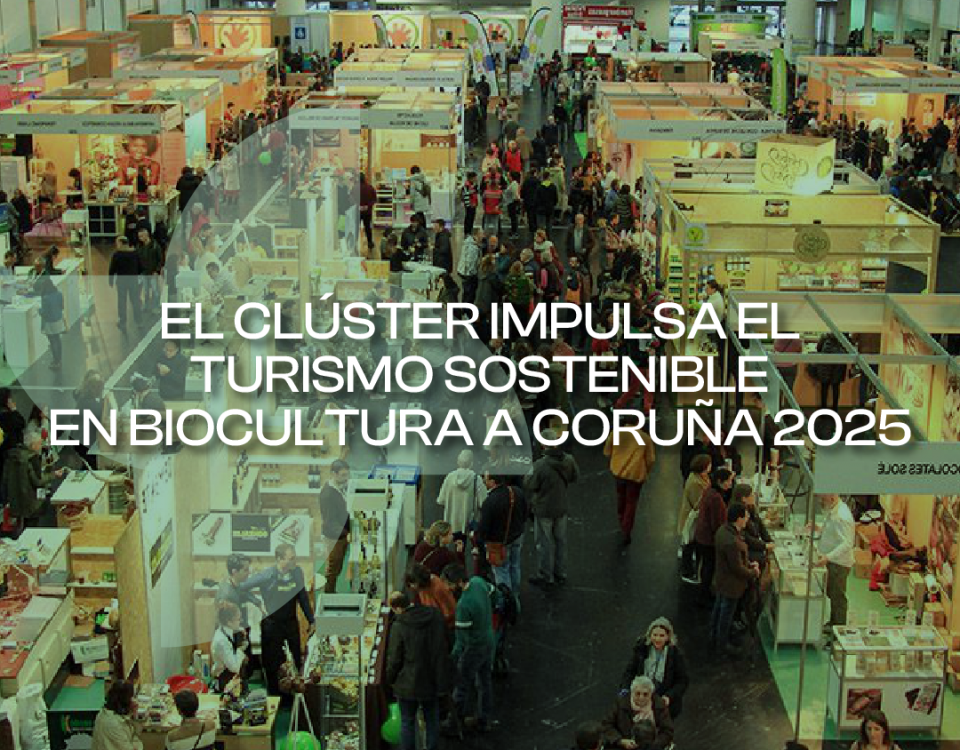- El mejor turismo de galicia
Activities
- The CTG has digital passes to access BioCultura 2025, the request can be processed through the corresponding form.
From March 7 to 9, EXPOCoruña will be the setting for a new edition of BioCultura A Coruña, the reference event in ecological consumption and sustainable tourism. Within this framework, the Galician Tourism Cluster will actively participate with an exhibition space in which it will present its initiatives to promote a more responsible tourism model aligned with sustainability.
One of the pillars of its presence will be the promotion of the ‘Galicia Sustainable Destination’ brand and its product club, an initiative that seeks to consolidate Galicia as a quality destination, differentiated and respectful of its environment. Through this proposal, the Cluster promotes experiences that stand out for their authenticity, their positive impact on the local community and their commitment to the conservation of natural and cultural heritage.
In addition, BioCultura A Coruña 2025 will bring together companies and professionals from the organic sector in a space for dissemination and exchange. The fair will offer a program of activities focused on organic gastronomy, responsible tourism and strategies to minimize environmental impact, with presentations and exhibitors that reflect the growing demand for a more sustainable tourism model.
For those who wish to attend, the Galicia Tourism Cluster has digital passes to access BioCultura 2025. Those interested can request them by completing the corresponding form and thus learn first-hand about the initiatives that are transforming ecotourism in Galicia.
Form disabled. All applications received by Friday, March 7 at 1:00 p.m. will be processed.




